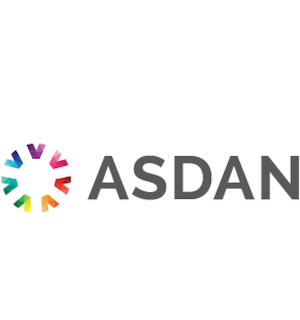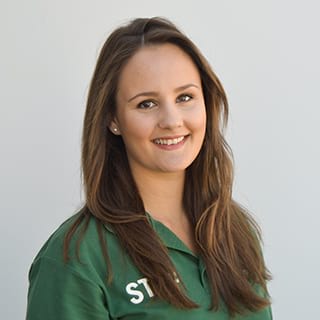First impressions
Two weeks of experiencing the Sri-Lankan culture, people and medical system has opened my eyes to so many different aspects of both human nature and medicine. The contrast between a government hospital in Sri Lanka and the United Kingdom is so phenomenally different regarding resources, doctor-time and the patient experience. The project has made me especially aware of the United Kingdom and how naïve and lucky we are to have such a stable country with an effective healthcare system. From the moment I stepped off the plane, I felt welcomed by the culture and Sri Lankan people. As the days progressed, they never faltered in their warm and hospitable nature. I participated in a two-week medical volunteer project from the end of June to July and cannot imagine a better way I could have started my summer.
My medical placement
I was working in two hospitals, both government funded facilities located a few hours south of Sri Lanka’s capital Colombo. Here I worked on a Short-term Special medical program, which mainly consisted of observation as well as gaining an understanding of traditional Ayurveda medicine.
The programme also included a community outreach, giving practical hands-on experience in taking blood pressure and blood glucose levels to diagnose diabetes and to ensure levels are stable. I also participated in Q&A sessions with experienced doctors and awareness programmes for pupils in government schools. It is an objective of Sri Lankan healthcare professionals to raise awareness of NCDs (Non-Communicable Diseases) which are responsible for a large number of deaths in Sri Lanka.
In the base hospital, it was not uncommon to see stray animals in the hospital and up to three patients sharing one bed due to the large number of daily admittances. Dengue fever was a particular problem when I was there; it’s a viral disease spread by mosquitos resulting in high fever and acute pain.
Each day I would rotate wards working in Gynaecology, PCU (Progressive Care Unit), PBU (Premature Babies Unit), Paediatrics, A & E, Physiotherapy, Outpatient and Inpatient wards, Endoscopy and Obstetric wards. Doing this gave me a greater insight into the medical field and how different conditions are dealt with in a less developed country. There are many limitations to the Sri-Lankan health service, one example being the long queues. When speaking to some patients, they said that they would wait from 5am just to get a 9am appointment. General Practitioners in outpatient clinics will see hundreds of patients daily.
A memorable day on my medical placement
I was in the Gynaecology ward in the morning from 8:00am to 2:00pm and it was probably the most moving experience I’ve had in my life. I was in the labour room for 3 - 4 hours and in this time I witnessed five healthy births! The room was no bigger than a school classroom where women were aligned in beds 30cm apart. Out of the 10 women there on that day, eight of them were in labour during my observation.
The room was chaotic with screaming, moaning and the movement of midwives, nurses, assistants and the gynaecologist. As we were all in the same room, women who had just started labour could see and watch the births of others beside them – that must have been quite hard for the women to see. The first birth I watched was at 10:18am that day and it may sound cliché but it was as if everything in the room stopped for a second as this wrinkled, wet, bright pink baby emerged from its mother. It was a privilege to witness something like this and 10 minutes later, I had the honour of holding this delicate new-born.
I learnt about the four stages of labour from the Sri Lankan gynaecologist: 1 - full cervix dilation, 2 - dilation to delivery, 3 - delivery to expulsion of the placenta and 4 - expulsion of the placenta to afterbirth recovery. I did not even hear the mention of an epidural during that day, but the gynaecologist mentioned that they use different kinds of medication. By learning some of the local language Sinhala, I was able to make the medical staff and patients laugh extensively on exclaiming “congratulations” to the mothers who had given birth and “happy birthday” to the new-born infants. The laughs are most likely due to my awful pronunciation!
In the afternoon I was in PBU (Premature Babies Unit). In this unit there were specified areas for respiration, infection, circulation and digestion issues. There was a baby there just 34-weeks old and it was so small - its perfect nails so minute. PBU differs from the usual neonatal ward in the aspect that all babies there are dangerously young and in need of immediate help. Babies born so prematurely are susceptible to infection and will be too cold at room temperature so must be kept in an incubator. I saw various babies with many different conditions, infections and diseases. I clearly remember a baby with jaundice that was treated with photo-therapy by being put under a bright light with a mask over the eyes. I learnt that the specific light helps to break down the chemical that causes jaundice to occur (Bilirubin). This chemical is a natural product that is made from the breakdown of red blood cells in the body and excreted in the bile - through the liver.
I also observed a baby that had ‘Bronchopulmonary Dysplasia (BPD)’. This is a chronic lung disease; the new-borns have immature lungs and an abnormal development of the lung tissue occurs and they often need a constant oxygen supplementation and positive airway pressure. Underweight infants are at high risk of developing BPD.
My overall experience
Projects Abroad Sri Lanka was one of the most memorable and extraordinary experiences I have ever had. The extensive support of our advisers, the Projects Abroad team, the amazing people of Sri Lanka and my medical experience all played a hand in my experience. A special thanks goes to our advisers who were incredibly accommodating throughout the trip. My Sri Lankan host family were also so welcoming and made delicious, if somewhat spicy, food! I felt so relaxed around them and they were constantly happy and laughing.
The other volunteers I met and befriended are what made my trip outstanding. I met people from over 10 different countries and have kept in touch with all my immediate team. Going to a country half way across the world is incredibly daunting but the people I met made me feel so comfortable and I was genuinely sad to leave. In the evenings we would be able to go on beach and pool trips and due to the lack of Wi-Fi we spent hours talking on the balcony together and playing cards. It was refreshing to be in a place and just enjoy our time rather than looking at our phones constantly or messaging people. I would highly recommend Projects Abroad to anyone as they’re well organised and take the stress off of you especially when you have to travel far from home. It’s comforting knowing they’re always only a phone call away if anything goes amiss.

Are you interested in joining this project?
If so, one of our experts can help.
Contact Us on:
This is a personal account of one volunteer’s experience on the project and is a snapshot in time. Your experience may be different, as our projects are constantly adapting to local needs and building on accomplishments. Seasonal weather changes can also have a big impact. To find out more about what you can expect from this project we encourage you to speak to one of our friendly staff.
Our accreditations



















